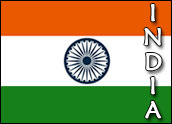
This has been a bad couple weeks for your country, Pakistan. Every day brings more bad news. The worst indication is the drop in confidence among broad segments of the business community in Pakistan earlier this month, particularly the tech sector, which has been growing at over 50 percent per year and represents one of your strongest bases of support.
Whereas the world as a whole has been transfixed by the London bombings, recent telecommunication problems that cut most of Pakistan off from the outside world for more than 11 days have caused widespread economic damage.
Although press coverage had previously revealed the fragility of Pakistan’s telecommunications links, most businesses in Pakistan were caught unprepared. Additional maintenance outages that were set to begin yesterday on Pakistani Internet and voice traffic traversing through Europe were belatedly averted by last-minute rerouting.
Need for Telecom Reforms
If there was ever a time for a country to reposition itself, now is Pakistan’s time. We begin here by outlining actions that can be taken to boost the economy and business confidence, then turn to what Pakistan might do to improve its image as a safe country in which to work and invest.
The economic damage caused by recent malfunctions with the SMW3 submarine cable was aggravated by government telecommunications policies. Those policies are still in place.
Your government has been moving to privatize the government-owned Pakistan Telecommunications Company Limited (PTCL), Pakistan State Oil (PSO), Oil & Gas Development Corporation (OGDC), and other government or state-owned firms. Privatization is not synonymous with economic liberalization, as we see in the telecom sector. Regulations stemming from another era that drive all international telecommunications traffic through PTCL are still in place.
If there had been full telecommunications liberalization before the recent outage, then individual firms would not have been blocked by the government from quickly arranging for communications backup links independent of PTCL. While the government did a commendable job of providing free satellite backup links to commercial call centers during the outage, other sectors of the economy that are not stand-alone international call centers suffered considerable damage.
Governments Cannot Pick Winners, Losers
In addition to allowing independent international connections, Pakistan needs to lift restrictions on the use of technologies that are well established elsewhere in the world. The first thing that can be done is to lift the limit on digital subscriber line (DSL) speeds from the current 2 Mb cap.
Second and more important is the question of lifting restrictions on the use of voice over Internet protocol (VoIP) for making telephone calls over the Internet. Those restrictions were originally instituted to drive all telephone traffic through PTCL.
In speaking with overseas Pakistanis about changes they would like to see in Pakistan, lifting restrictions on VoIP outranks everything else. The ban on VoIP is a hidden tax that makes Pakistan less competitive internationally. At a time when all major international corporations are integrating their global operations through VoIP, a ban on VoIP is a high price to pay for protecting PTCL.
When governments pick technological winners and losers, everyone loses. Pakistan can be on the cutting edge of the deployment of new technologies. Fully deregulating telecommunications is a good first step in that direction.
To its credit, it should be noted that your IT Ministry recently succeeded in arranging for the construction of two separate high-speed telecommunications links. One new link will go through India and tap into their international telecommunications backbone, while another will be a submarine cable to a hub in France, with connections to the U.S. and UK. Along with recently expanded satellite links, Pakistan by the end of this year will have excess high-speed capacity and triple redundancy that will make it a reliable location for mission critical IT operations and a hot spot for IT outsourcing.
Diversify the Economy
Your government has been encouraging local investors to venture into the international call center arena. However, the future of customer service is not with pure-play call centers. Pakistan arrived five years behind India in this increasingly saturated market. Your country’s international call center industry faces market-entry hurdles, despite Pakistan’s cost advantages, more stable labor pool, and listener-friendly accents.
For Pakistani firms to trail India into the pure-play call center market might not be a good move unless those firms can gain competitive advantages through cutting edge technology or domain expertise in specialized market sectors. Technology developments in voice recognition software will cause the general market for low-end call center services to contract within 10 years.
A smart move for entrepreneurs would be to see where the markets and technology are heading in five years and to aim for those targets. South Asian investors who lack a background in high technology and a track record with small scale international IT and customer service outsourcing projects would be advised to invest in local firms with demonstrated expertise in those areas, rather than attempting to start their own firms right away.
In the future, traditional call center services will form a small portion of the revenue generated by companies with commercial call center operations. We will see more firms such as InfiniLogic in Karachi, which generate less than 20 percent of their revenue from call center services. The other 80 percent is generated by their technology products and services, and by Web site-content-creation work performed by their Karachi-based staff.
The future has Pakistan competing on the basis of brains, not on the numbers of call center seats filled by telemarketing agents. The future does not have Pakistan chasing other low wage countries into the bottom of the global outsourcing market. But that future cannot occur without the telecom reforms discussed earlier and without new initiatives at all levels of the educational system in Pakistan.
Educational Initiatives
Pakistan’s educational system was inherited from the British. Under this system, as in India, the last two years of secondary school are called “college” or “plus two.” An undergraduate university degree takes two years to complete, three years for “honors,” followed by one year to complete a Masters degree.
To receive a Masters degree in Pakistan, as in India, Sri Lanka, and Bangladesh, students only need to study for four years after high school. Because those South Asian degrees do not have formal counterparts within the U.S., they are rarely recognized within the U.S., where six or seven years of post-secondary study are often needed to obtain a Masters degree.
The colonial-era university system has done a good job of propelling South Asian countries into the global economy today. But that system needs fundamental changes to enable those countries to maximize their potential over the next 10 years. The first country in your region that upgrades its higher education system so that its degrees are considered on par with U.S. degrees will gain immediate competitive advantages.
Part of your success, as with the current prime minister of India, is based on having obtained degrees in the UK. One reason why it is so easy for Americans to do business in Pakistan is because so many top managers of Pakistani firms have U.S. or UK. degrees. They understand how to work with Americans and they are keen to buy products and services from the U.S.
Pakistan’s economy is growing at 8.4 percent per year, faster than every other country in the world except China. To provide a skilled talent pool for sustaining that level of growth requires robust educational improvements at all levels. This means expanding access to high quality education beyond the urban elites, including at the preschool, primary and secondary levels.
International Funds
The global attention now being paid to madrasahs (the Arabic word for schools) in Pakistan can be used to attract international funds for upgrading schools in Pakistan. It can also attract teachers from the West. Western teachers, besides providing educational benefits, will also serve as a people-to-people bridge to dispel common misconceptions about Pakistan in the West, especially misconceptions that Pakistanis somehow dislike Westerners or that Pakistan is unsafe.
In addition to attracting new high-quality local and international instructors, Pakistan needs to do more to retain its best existing teachers. In universities, some professors in high-tech fields already have their salaries subsidized to levels of about US$4,000 a month. This is a good first step, but it is not enough to prevent firms that need middle or upper level managers from simply walking in and offering to immediately double or triple those salaries. We will address the subject of middle managers below.
At no university in Pakistan have I seen examples of exceedingly well-financed faculty positions (called endowed chairs) that can attract accomplished world-class experts to conduct cutting-edge work in Pakistan. Attracting top-tier international talent through endowed chairs will help give Pakistan a reputation and competitive edge that it needs in an increasingly competitive world.
Endowed chairs should not be restricted to elite private schools, but should be encouraged at the big government schools and in less central areas of the country, such as Peshawar. In addition to benefiting the country, endowed chairs provide long-term prestige and recognition for donors.
Importance of Middle Managers
As the global economy changes, so too does the importance of middle managers. When my father worked on database projects in Pakistan and India in the early 1960s, he only needed to interact with top managers in each country. Over 40 years later, everyone in an IT organization in those countries is potentially client facing, particularly given quality assurance and quality control processes now being used by Western clients. Everyone needs to have client relations skills, communications skills, quality control skills, and business management skills. Those skills are not being provided as part of standard university degree programs in high tech fields in South Asia today.
Roles of middle managers have become both more important and more complex in the last few years. Rana Saad of the software development firm Pi Sigma Group said:
“One thing I have felt having been in the outsourcing-to-Pakistan business for seven years is the shortage of good senior management skill and talent available to the IT industry in Pakistan. Everybody knows the role of IITs and other great IT institutions in the rise of India’s technology industry, but an equally important factor has been the IIMs [Indian Institute of Management] and other good business schools. These schools are producing thousands of highly effective managers who are building and leading hundreds of companies globally. Pakistan has just two good business schools — LUMS and IBA — which together produce less than 300 MBAs a year, most of whom either go to work for large multinationals or go abroad to work. Most IT companies in Pakistan lack a business-savvy management team to take them to a global scale. Moving forward, if Pakistan is to become a recognized player in the global IT industry, it has to be able to produce the leaders and visionaries to help it get there.”
Pakistan’s Image
“News about international terrorist attacks and their ties to Pakistan are detrimental to the image of Pakistan as a safe place to conduct business,” said Omar Khan, head of mobile phone software firm NetPace in Silicon Valley. Omar added, “The government needs to do a lot more to eradicate extremist elements from the country — our future depends on that.”
Although it is widely recognized within Pakistan that your country is the strongest ally that the U.S. has in its fight against terror, and that more Pakistanis have been killed on the U.S. side than people from any other nation, your government has done little to highlight its efforts in this regard. Consequently, Pakistan’s role goes largely unrecognized internationally.
Also unrecognized is how safe it is to travel and work in Pakistan, and how welcoming Pakistanis are to Americans from all walks of life. There would be more Americans who could help get that message across if your government were to remove the one-month limit on durations of stay for most business visas and if it were to help make visa renewals a less arduous process.
Conclusion
“The recent problems with connectivity have wreaked havoc with a number of companies operating here but we are already seeing positive benefits emerge from the experience,” said Ayub Khan at InfiniLogic. “There is a renewed sense of urgency amongst both industry and government about developing a robust infrastructure and eradicating the mountains of red-tape that have previously stifled small business,” he said.
Ayub notes that IT companies in Pakistan are now talking openly and frankly with each other and with your government about:
- How to develop a common strategy for the IT industry.
- How to improve quality.
- How to improve the image of the IT industry.
Last Saturday morning, Ayub participated in a meeting with managers from 10 other international IT companies in Karachi. He reported that every person attending the meeting was not just focused on their individual problems, but on not “letting the side down.”
Most of those firms have managers who grew up in the U.S. or Europe, obtained their education and initial work experience there, and fully understand the quality of service that must be maintained in order to compete effectively in global markets. Ayub said, “It is this group who will lead the next wave of growth in South Asia.”
Anthony Mitchell, an E-Commerce Times columnist, has beeninvolved with the Indian IT industry since 1987, specializing through InternationalStaff.net in offshore process migration, call center program management, turnkey software development and help desk management.


















































Social Media
See all Social Media